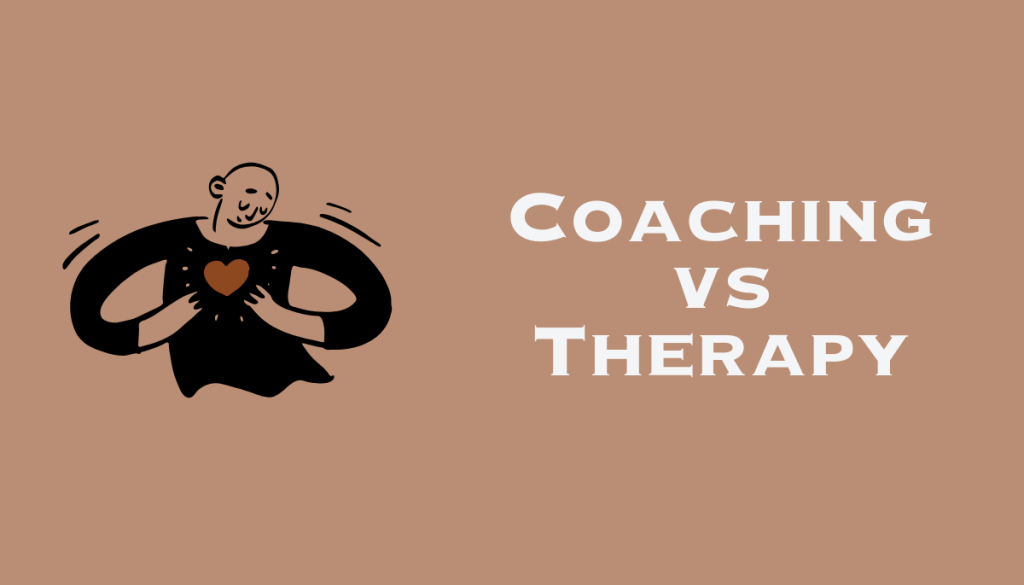Coaching and Therapy: Understanding Key Differences and Benefits
“ I don’t need a coach.”
“ I’m not in trouble.”
“ I am a physician. Doctors don’t need coaches.”
“ I have a therapist. How can a coach help me?”
Those are just a few of the comments I hear from physicians regarding coaching. My response to these comments ranges from understanding, to frustrated, to amused. Professional athletes have coaches. Fortune 500 CEOs have coaches. Taylor Swift has a vocal coach. Oscar winning actors have coaches. If leaders in each of these fields benefir from coaching, why are physicians so slow to take advanatge of this resource.
In this post I am going to address the last comment, “I have a therapist. How can a coach help me?”
Have you ever wondered whether you need a coach or a therapist to achieve your goals or overcome challenges?
Both coaching and therapy play vital roles in personal growth, but they focus on different aspects of your journey. Understanding the distinctions between these two approaches can help you make an informed decision about which path is best for your needs—or even decide to pursue both! Let’s break it down.
The Focus of Coaching
Coaching is all about the present and future. Coaches work with individuals to identify goals and create actionable strategies for achieving them. These goals can range from addressing current struggles to fostering development in areas like career progression or personal growth. The emphasis is on moving forward and unlocking potential. Coaches often specialize in specific areas, such as:
- Life Coaching: Focuses on personal life goals and improvements.
- Leadership Coaching: Helps individuals enhance their leadership skills and effectiveness.
- Communication Coaching: Aims to improve interpersonal and professional communication abilities.
- Physician Coaching: Coaching tailored to the specific needs of physicians. Incorporates aspected ot life coaching, leadership coaching, communication coaching, and career coaching.
Using tools like motivational interviewing, goal-setting techniques, and assessments for emotional intelligence or communication styles, coaches help clients develop action plans. They also hold clients accountable to these plans, encouraging them to stretch and grow toward success.
The Focus of Therapy
Therapy, on the other hand, centers on mental and emotional well-being. Therapists help clients address past experiences and how they impact their present lives. The ultimate goal of therapy is healing—whether it’s overcoming trauma, managing mental health challenges, or breaking through emotional barriers that prevent a fulfilling life. Therapists use clinical techniques, such as cognitive behavioral therapy, and are trained to diagnose and treat mental health disorders. While the focus is often on the past, therapy also equips clients with tools to navigate their present and future more effectively.
How Coaching and Therapy Work Together
It’s not uncommon for individuals to benefit from both coaching and therapy simultaneously. These approaches complement each other because they address different yet interconnected needs. While therapy focuses on healing and understanding, coaching emphasizes growth and action. For example, a therapist might help someone work through the emotional aftermath of burnout, while a coach could assist them in setting goals for achieving work-life balance and advancing in their career. Together, they provide a comprehensive support system for personal and professional development.
Choosing What’s Right for You
So, how do you decide between a coach and a therapist—or both? Consider your current situation:
- Are you focused on setting and achieving future goals? A coach might be the right fit.
- *Are you dealing with unresolved emotional challenges or mental health issues? A therapist could provide the support you need.
- Do you want to address both aspects simultaneously? Combining coaching and therapy could be the ideal solution.
Final Thoughts
Both coaching and therapy have their unique strengths and purposes. By understanding their differences, you can make an empowered decision to pursue the support that aligns with your current needs and aspirations. Remember, it’s not a matter of choosing one over the other—sometimes, the best approach is embracing both to achieve holistic growth. Are you ready to take the next step in your journey? Whether it’s setting goals with a coach, healing with a therapist, or both, the key is to invest in yourself and your future.
Are you a physician considering coaching? Book a free coaching consult to learn more about our process!





